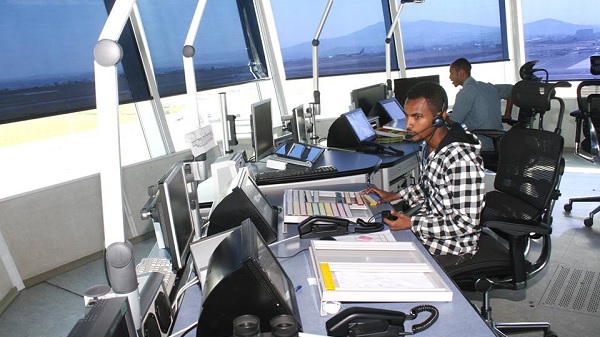
Ethiopian air traffic controllers began the strike on Monday after disputes over pay and calls for more employment benefits.
By Elias Meseret (AP Africa)
ADDIS ABABA – Air traffic officials in East Africa are warning of risky conditions for flights in the region around Ethiopia’s international airport after air traffic controllers there went on strike over pay.
Addis Ababa is home to state-owned Ethiopian Airlines, which calls itself Africa’s largest carrier. The city is a diplomatic hub as the African Union headquarters and a commercial center as the capital of one of Africa’s fastest-growing economies.
A Kenya Air Traffic Controllers’ Association official, Peter Ang’awa, confirmed to The Associated Press (AP) that “issues of concern have been raised by professionals in the industry. We have raised those issues.”
An International Federation of Air Line Pilots’ Associations safety bulletin says air controllers indicate that aircraft are entering the adjacent Nairobi and Khartoum airspaces “in an uncoordinated manner.” It says aircraft may not be receiving appropriate instructions.
Ethiopian Civil Aviation Authority’s Director General, Col. Wosenyeleh Hunegnaw, confirmed to the AP that Kenya and Sudan have raised concerns about the safety of inbound and outbound flights in Ethiopia but called the allegations “totally unfounded and an utter lie.”
All of the claims have been assessed case by case based on radar data, he said.
“Air traffic controllers across the world have the tendency to collaborate in a show of solidarity when issues related to benefits and pay are raised, and we have informed this to the international civil aviation body,” Col. Wosenyeleh said.
Ethiopian air traffic controllers began the strike on Monday after disputes over pay and calls for more employment benefits. The average monthly salary for an air traffic controller is around $540.
“They will not achieve their goal by sabotage,” the civil aviation chief said.
He said retired air traffic controllers, some brought in from other countries and current employees working overtime are handling the situation.
Source: AP Africa
